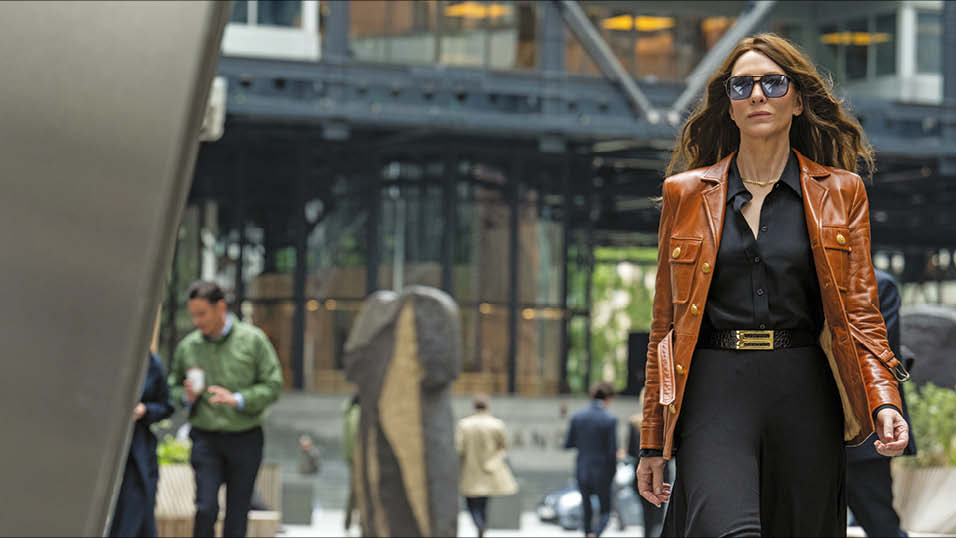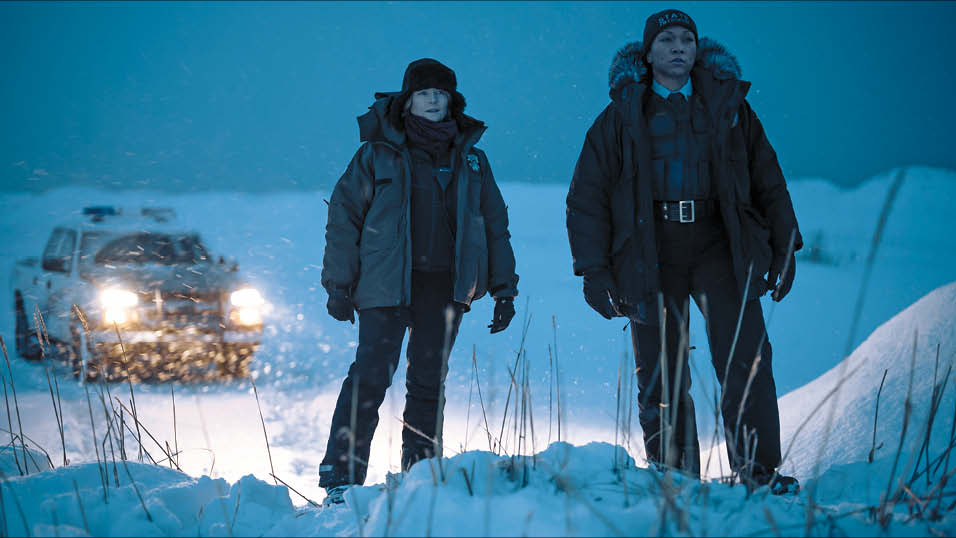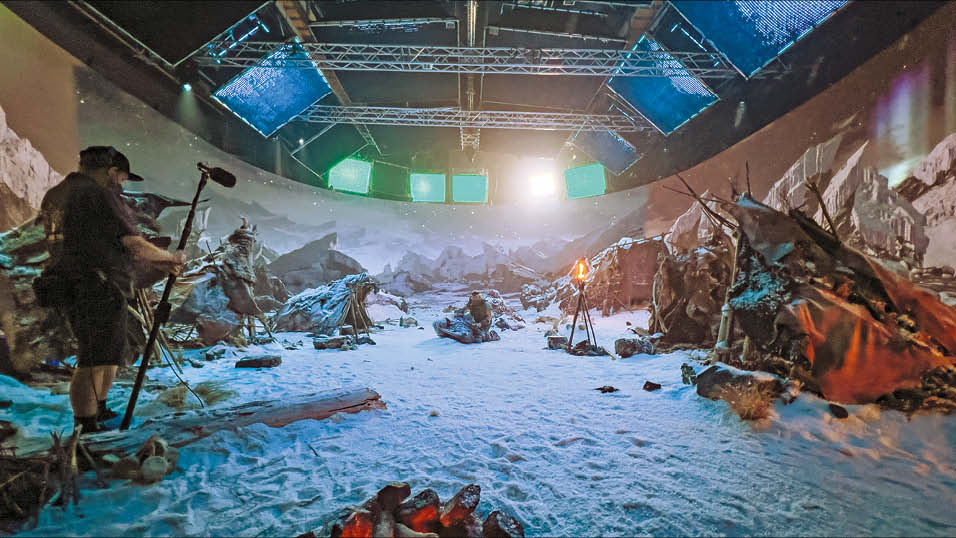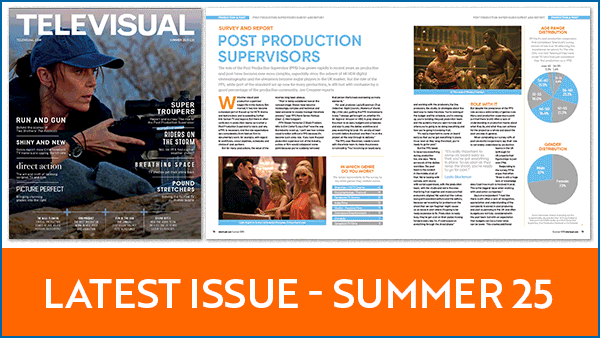.jpg) TV needs to become more sustainable, and production companies must adapt, says Roughcut TV head of production Tim Sealey
TV needs to become more sustainable, and production companies must adapt, says Roughcut TV head of production Tim Sealey
One of the biggest challenges on a production is time and this can become an easy excuse to avoid looking at becoming more sustainable. However, there are lots of simple ways to improve a production’s sustainability – and a more sustainable production adds value in terms of cost and time saving. Small changes in a number of areas can have a big impact on your production’s sustainability.
Technology – this provides plenty of opportunity for sustainability. At Roughcut TV, production call sheets are distributed digitally and if anyone wants to receive physical copies of call sheets or scripts they must specifically request them. This has resulted in saving a massive 80% of paper – an easy reduction in excessive usage and saves time and money.
Energy – LED lighting provides another huge opportunity, providing big savings in the amount of energy used and therefore energy cost is much lower. LED lighting is much more adaptable where it is possible to control colour temperature meaning a reduction in the number of lights and reduced need for gels. However at present the lighting companies tend to charge a premium if LED lighting is requested. This is slowly changing as the technology becomes cheaper to buy. but iIt is important for the production community to put pressure on lighting companies to pass on those savings and ensuring that there is no premium when hiring LED. Rechargeable batteries are also a must on set.
Waste – with large numbers of people on set, waste is a huge concern. One of the biggest contributors to unnecessary waste is plastic water bottles. Normally crates of these are brought in at the beginning of production with hundreds of bottles being discarded on a daily basis. At Roughcut, we have banned water bottles from set and introduced personally inscribed refillable aluminium bottles for each member of cast and crew. Despite the initial outlay, these provide a huge cost saving. Also on our strict banned list is polystyrene – hard paper or chinaware is used instead. Food is another area in which wastage can become excessive. On set we ensure there are bins provided to segregate food from waste, compostable food waste is given to local farmers where possible.
Travel – this is an area where production sees a huge amount of carbon being produced and generally has the biggest impact on a production’s sustainability. It is incredibly important that we see a change in the culture of gas guzzling limos ferrying talent to and from the shoot. There must be pressure from the production community to implore talent to share cars where possible and on production drivers and car companies to use hybrid vehicles. Carbon mileage is a massive challenge for the industry. Hiring kit abroad when filming overseas and using local crews can help to severely reduce the production’s carbon footprint from air travel and can also make significant cost savings.
An often overlooked consideration is to take a creative approach to sustainability, to think outside the box. Our comedy for Sky 1, Trollied, has run for six series and over that time we have found lots of different ways to make the production more sustainable. The supermarket set was made using recycled materials repurposed from real supermarkets. The mock up supermarkets shelves were stocked with out of date boxes and tins of food that would otherwise have been thrown away. To create the supermarket aesthetic we used 95% fluorescent lighting which is significantly lower in energy usage than an ordinary lamp. As the entire series is filmed in the purpose-built set, the cast stayed in the same hotel and could therefore travel to set in shared transport – a far cry from the limo, but when we explained the reason for this they were happy to make the sacrifice.
Television is an industry lagging behind in terms of sustainability and we must all make the effort to catch up. At the start of any Roughcut production we send a message from the Managing Director to the crew outlining our sustainability targets. This ensures that everyone working on the production is aware of our goals and is supportive. We have found that all involved take it very seriously with their feedback and suggestions are welcomed.
Education is the key here, there is a responsibility to make sure that beyond being told why sustainability is being considered, it is important to educate everyone involved in the production so that they support the process.
We are very proud that Roughcut TV was the first production company to receive the full three stars from Albert +, a sustainability commendation organisation, for Trollied. Sky are a broadcaster leading in this field. They send a clear message that they expect the production companies they deal with to share their sustainability goals.
When making a show for Sky, the production company must complete Albert reporting as evidence of the productions sustainability. If a production does not do this then they will not get their final money released. A real incentive to comply to be sure. This sets a clear example of a culture of sustainability that goes from the very top – from the commissioning broadcaster, to the production company, through to the cast and crew and all the way to the local farm animals eating the productions food scraps.
We are proud of our record and have found that these small changes have not been that time consuming to put in place. They have not had much effect on how we run a production but have made a big difference to our carbon footprint. We can always do more but it’s a fantastic starting point and we hope an example for the rest of the industry to follow.
Staff Reporter
Share this story

















